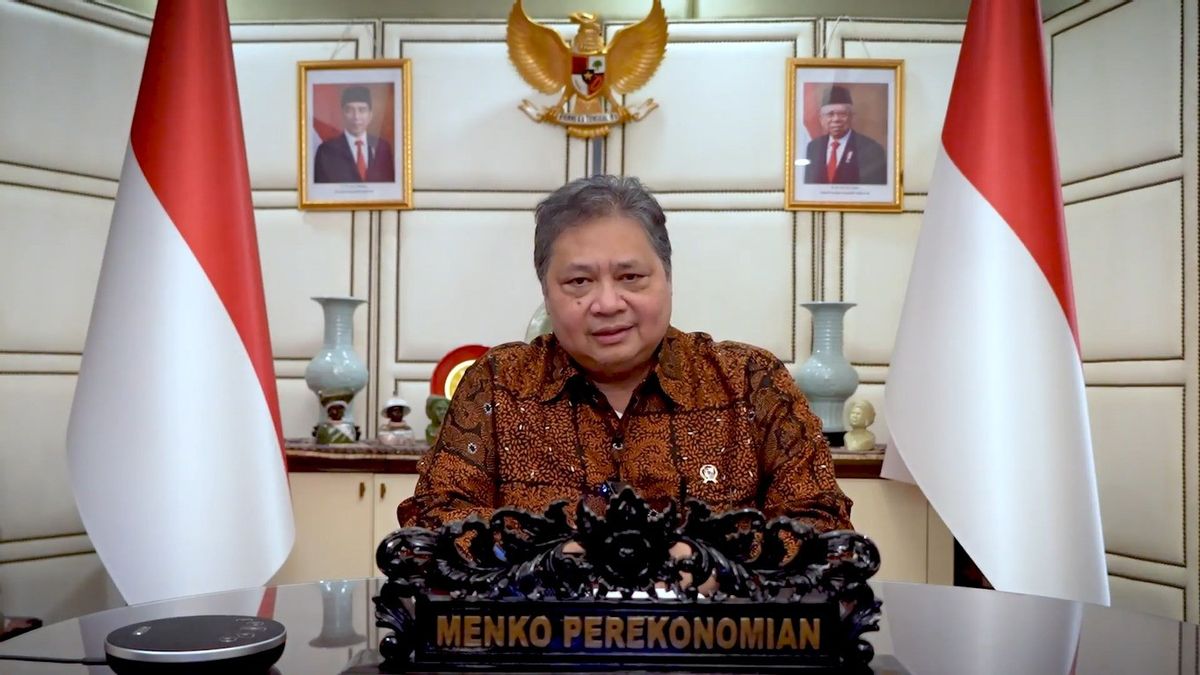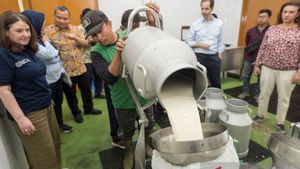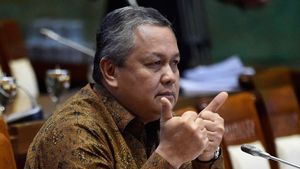JAKARTA - The digital economy is increasingly transforming into one of the sectors that continues to experience significant developments, especially supported by an increase in commitment to research and development, as well as planting an innovation culture.
Based on a report from the World Intellectual Property Organization (WIPO), Indonesia's Global Innovation Index (GII) in 2022 is ranked 75th out of 130 countries. This achievement is an increase of 10 levels compared to 2020.
One of the innovations in the digital economy sector is through the use of Artificial Intelligence (AI). AI development in Indonesia itself is also driven by the large amount of internet usage and start-up growth that utilizes technology to support business activities.
However, automation through the use of AI will also pose challenges related to reduced employment opportunities. According to the World Economic Forum (WEF) in The Future Jobs report, it is estimated that in 2025 43 percent of industry players will reduce their workforce as a consequence of technology integration.
Coordinating Minister for Economic Affairs Airlangga Hartarto said that although this was a challenge, not everything regarding AI was negative as seen. Most of the work and industry are only partially affected by automation and are more likely to be equipped than replaced by AI.
"Therefore, the biggest impact of AI technology is most likely not on the loss of employment opportunities, but the potential for changes to the quality of work, especially the intensity and autonomy of work," said Airlangga in his statement, Sunday, June 23.
Airlangga conveyed that along with the use of AI technology, the Government has also prepared a number of policies in order to overcome various potential risks related to the use of AI, one of which is through the launch of the National Digital Economy Strategy.
SEE ALSO:
Airlangga explained that the framework consisted of 6 (six) pillars, namely first Infrastructure, second Human Resources, third Business Climate and Cyber Security, fourth Research, Innovation and Business Development, fifth Funding and Investment, and six Policies or Regulations.
Furthermore, the fourth pillar regarding Research, Innovation and Business Development will focus on efforts to develop and manage the AI ecosystem in Indonesia to make it better.
Meanwhile, Airlangga conveyed his main focus on the pillar to improve research and development capabilities as well as innovative processes to accelerate digital transformation in Indonesia.
"One of the initiatives taken by the Government regarding these pillars is to build and launch special innovation zones in several districts in Indonesia, with a focus on developing futuristic technology," he said.
Airlangga said that in addition to completing the preparation of the stranas, in 2023 the Government also issued regulations regarding the ethics of using artificial intelligence as the starting point for the use of AI in the public sector.
Furthermore, Airlangga said that the Government would continue to strive to develop the best practices in the use of AI.
Let's take advantage of AI's potential to reshape our labor market for the better. Together, we can build a labor market that is not only resilient but also adaptive, innovative, and inclusive," he said.
Airlangga hopes that in the future, AI will improve Indonesia's economic landscape and create new opportunities for the workforce, so that it can help in achieving sustainable growth and development.
The English, Chinese, Japanese, Arabic, and French versions are automatically generated by the AI. So there may still be inaccuracies in translating, please always see Indonesian as our main language. (system supported by DigitalSiber.id)













